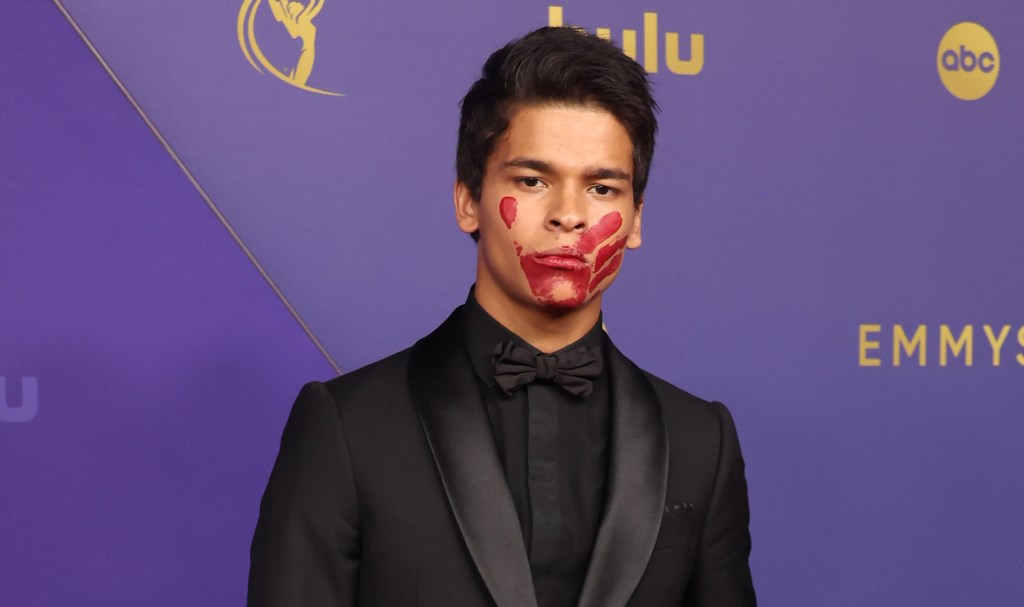It was a striking image that got people’s attention while scrolling through Emmy red carpet photos and videos Sunday — D’Pharaoh Woon-A-Tai, one of the stars of FX’s comedy series Reservation Dogs, had a red handprint painted over his mouth, which stood in contrast to his slick all-black tuxedo ensemble.
In a town used to provocative outfits and makeup, the bloody mark had a deeper — and heartbreaking –meaning. A red hand over the mouth has become the symbol of the Missing And Murdered Indigenous Women movement which is raising awareness about the high rates of Native women across the U.S. and Canada who are killed or abducted each year.
The 22-year-old Woon-A-Tai, a Canadian of Oji-Cree First Nations descent, told Deadline that he came up with the idea for the bold statement shortly after he became the first indigenous performer to receive an Outstanding Lead Actor in a Comedy Series Emmy nomination for his role in Reservation Dogs.
“This epidemic has been ignored for far too long and has devastated the lives of countless Indigenous people,” he said. “I’ve been waiting for the right moment to make this statement, and when I received the Emmy nomination, I felt an obligation to use the opportunity to spark these conversations.”
He recruited makeup artists Martha Phelan to create the handprint. She is one of those countless indigenous people whose life had been impacted by the crisis, with her sister being a victim.
Woon-A-Tai kept the face paint on throughout the Emmy ceremony, getting national attention with several close-ups during the telecast, as well as the Disney afterparty. (The Lead Actor In A Comedy Series Emmy went to the star of another FX series, The Bear‘s Jeremy Allen White.)
The meaning of his statement was lost on many Emmy attendees he encountered but he is hopeful that it got their attention so they can learn about the issue.
“Most people backstage and at the show were confused and didn’t fully understand its significance,” Woon-A-Tai said. “I hope this will inspire more conversation and curiosity within my industry about this and encourage those who are fighting for the voices that cannot be heard.”

